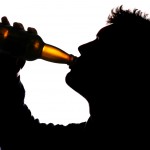
Alcohol misuse is common in people with mental health problems and the rates of drinking are particularly high in bipolar disorder. Studies show that the lifetime prevalence of substance use disorders is at least 40% in bipolar I patients (ref Cerullo et al).
Researchers from Newcastle University in the UK have conducted a systematic review to find out the self-reported reasons and motives for alcohol use in bipolar disorder, to try and understanding why people drink in excess and develop appropriate ways to help them.
The reviewers found 6 relevant studies from a search of Medline and PsychInfo and assessed the quality of the research using criteria they developed for this review. The quality of the included studies was limited, as the patients included in the different studies were quite different from one another and there were inconsistencies in the way the studies measured data.
Clearly this is not the most reliable of systematic reviews as the studies included are variable and there are a number of biases that could creep in when the reasons for drinking are self-reported. However, given the paucity of high quality evidence in this area, the results of this study are worth considering.
The review confirmed the widely held belief that many people with bipolar disorder self-medicate with alcohol, in an attempt to relieve distressing mood states. Furthermore, the researchers found that there were other reasons given for drinking – to enhance euphoric mood and just to be sociable.
The reviewers discuss their findings in the context of the self-medication hypothesis and cognitive motivational models of alcohol use.
They concluded:
Although implicitly alcohol use in patients with bipolar disorders is often been interpreted as evidence of a co-morbid alcohol use disorder or an inadequate coping pattern, it is essential to test this belief as a clinician. An adequate formulation has to consider that the motives to drink alcohol vary between patients with bipolar disorders and might also vary between mood states.
McDonald JL, Meyer TD. Self-report reasons for alcohol use in bipolar disorders: why drink despite the potential risks? Clin Psychol Psychother. 2011 Sep;18(5):418-25. doi: 10.1002/cpp.782. [PubMed abstract]
Cerullo MA, Strakowski SM. The prevalence and significance of substance use disorders in bipolar type I and II disorder. Subst Abuse Treat Prev Policy. 2007 Oct 1;2:29.
See also Equilibrium – The Bipolar Foundation, recent studies about bipolar disorder and substance misuse.

I’m glad to hear that they are doing some studies on this, even if the initial studies are a little uneven. I’ve always found the self-medication hypothesis a little odd, as it seems to assume that bipolar people who are abusing substances are doing so in a more self-conscious way than I think is actually the case.
I’m a little surprised, actually, to hear that there is such little evidence for it, and that it is really just a largely unsupported hypothesis at this time. Usually, psychiatrists are more cautious about holding beliefs, but this hypothesis is treated almost like common sense.